40 Life Changing Books You Should Read in 2019
<1 min read ⌚
It is an undeniable fact that life changing books can make a difference in the world. Moreover, they can do that in the most profound way imaginable. I, for one, would have been an entirely different person had I not happened upon Plato, Chekhov, and the Gospels in my early formative years; upon Sagan, Nietzsche, Sartre, Campbell, and Jung.
Precisely because of this, the list below has been on my mind for quite some time now – not merely because I wanted to create something which could serve as a constant reminder to myself of how I got to where I currently am.
The main reason why I’m publishing it, however, should be self-evident: consider each of the books here a warm and sincere recommendation by an avid reader and a lifelong believer in humanity’s power “to strive, to seek, to find – and not to yield”.
Unfortunately, it is too dynamic and focus-exhausting world the one we live in, and one certainly needs some guidance from time to time to (re)commit himself to the things which really matter in the most proper way; I would be more than happy to hear if some of the books below did such thing for you.
Because I know for a fact that each and every one of the titles on this list has the power to change the way you think: the books below have not only altered my perspective on life but also intensely transformed me as a person, affecting almost everything I do.
I originally planned to list the books in a chronological sequence, then (imitating, say, Tolstoy) to order them by the degree of influence they have had on me at a particular stage of my development.
In the end, I opted for something which I believe is even more reader-friendly: after playing around a bit with the titles, I grouped them into twenty categories, and I selected for each of them (out of a long list of more than a hundred titles) only the two I deem most influential in that specific discipline or sphere.
As you can see below, each book includes a brief (but original, informative and, sometimes, spoiler-heavy) summary, an introductory biography of the author, an illustrative review, a relevant quote and – most important of all – a raison d’être, aka a concise explanation why you should read the respective book and how exactly you can expect it to change your life.
Since I didn’t want to exclude some very dear life altering books of mine, I may have tweaked the categories a bit here and there; but, never in a way which should mislead the potential reader.
And even though it is, by design, a highly idiosyncratic list – its subjectivity should account for some of its more unconventional choices – whenever I had to pick between two similar books, I always went with the one which is generally (and, thus, objectively) considered more important, regardless of my opinion.
Enjoy!
List of Life Changing Books
(Click a title below to go to the respective section)
1. Philosophy
1.1 Marcus Aurelius – Meditations
1.2 Ludwig Wittgenstein – Philosophical Investigations
2. Epistemology and Human Knowledge
2.1 Immanuel Kant – Critique of Pure Reason
2.2 Nassim Nicholas Taleb – The Black Swan
3. Philosophy of Science
3.1 Carl Sagan – The Demon-Haunted World
3.2 Thomas Kuhn – The Structure of Scientific Revolutions
4. The Scientific Life
4.1 James D. Watson – The Double Helix
4.2 James Gleick – Genius
5. Memoirs and Autobiographies
5.1 Viktor Frankl – Man’s Search for Meaning
5.2 Paul Kalanithi – When Breath Becomes Air
6. Psychology
6.1 Daniel Kahneman – Thinking, Fast and Slow
6.2 Malcolm Gladwell – Outliers
7. Health and Medicine
7.1 Oliver Sacks – The Man Who Mistook His Wife for a Hat
7.2 Robert Sapolsky – Why Zebras Don’t Get Ulcers
8. Biology
8.1 Charles Darwin – On the Origin of Species
8.2 Richard Dawkins – The Selfish Gene
9. Ecology
9.1 Rachel Carson – Silent Spring
9.2 Elizabeth Kolbert – The Sixth Extinction
10. Anthropology
10.1 Yuval Noah Harari – Sapiens
10.2 James Suzman – Affluence Without Abundance
11. Mythology
11.1 James Frazer – The Golden Bough
11.2 Joseph Campbell – The Hero with a Thousand Faces
12. History
12.1 Arnold J. Toynbee – A Study of History
12.2 Eric Hobsbawm – The Age of Extremes
13. Geography
13.1 Jared Diamond – Guns, Germs, and Steel
13.2 Eric Weiner – The Geography of Bliss
14. Economics
14.1 Gregory Clark – A Farewell to Alms
14.2 Thomas Piketty – Capital in the 21st Century
15. Markets and Money
15.1 Benjamin Graham – The Intelligent Investor
15.2 John Kenneth Galbraith – A Short History of Financial Euphoria
16. Politics
16.1 Plato – The Republic
16.2 Jonathan Haidt – The Righteous Mind
17. Sex
17.1 Jared Diamond – Why Is Sex Fun?
17.2 Christopher Ryan and Cacilda Jethá – Sex at Dawn
18. Feminism
18.1 Virginia Woolf – A Room of One’s Own
18.2 Simone de Beauvoir – The Second Sex
19. Fiction
19.1 Marcel Proust – In Search of the Lost Time
19.2 George Orwell – Nineteen Eighty-Four
20. Practical
20.1 Marie Kondo – The Life-Changing Magic of Tidying Up
20.2 Mortimer J. Adler and Charles Van Doren – How to Read a Book
Honorable Mentions
Without further ado, let’s jump into the most life changing books of all time!
1. Philosophy
 1.1 Marcus Aurelius – Meditations
1.1 Marcus Aurelius – Meditations
About the Author: The last of the Five Good Roman Emperors – who ruled, according to Edward Gibbon, with a “firm but gentle hand… under the guidance of virtue and reason” – Marcus Aurelius was a life-long practitioner of Stoicism and the real-life version of Plato’s dreamed-up Philosopher King.
About the Book: Written to serve him as a source for personal guidance and self-improvement, Marcus Aurelius’ Meditations – a series of 487 Stoic notes and ideas, divided into 12 books – were probably never meant to see the light of the day. Fortunately, they did (we have no idea how or by whom this “quake book” was preserved) and they have served as an inspiration and signposts for life ever since. (Read a brief summary of the book | Buy the book)
How It Can Change Your Life: Let us quote here a brief appreciation by an unknown Byzantine poet, which, even though probably written a whole millennium ago, still rings true today: “If you desire to master pain/ Unroll this book and read with care,/ And in it find abundantly/ A knowledge of the things that are,/ Those that have been, and those to come.// And know as well that joy and grief/ Are nothing more than empty smoke.”
From the Reviews: “Alone of the emperors, he gave proof of his learning not by mere words or knowledge of philosophical doctrines but by his blameless character and temperate way of life.” – Herodian, History of the Roman Empire from the Death of Marcus Aurelius
A Relevant Quote: “Be not distracted by their darkness and run straight for the finish line, unswerving.” (Read more Marcus Aurelius quotes)
 1.2 Ludwig Wittgenstein – Philosophical Investigations
1.2 Ludwig Wittgenstein – Philosophical Investigations
About the Author: A filthily rich Austrian eccentric who gave up all of his wealth to serve as a decorated World War I officer, teach in remote Austrian villages and solve all philosophical problems, Ludwig Wittgenstein was (according to his teacher Bertrand Russell) “the most perfect example… of genius as traditionally conceived; passionate, profound, intense, and dominating.”
About the Book: The only book Wittgenstein published during his lifetime was the exceptionally slim Tractatus Logico-Philosophicus which he famously summarized in a single sentence: “what can be said at all can be said clearly, and what we cannot talk about we must pass over in silence.” Moreover, he believed that the Tractatus was the last philosophical work that would ever need to be written. However, the posthumously collected and published Philosophical Investigations seem to question both of these claims in a way, which, if true, renders the whole field of philosophy “at best, a slight help to lexicographers, and at worst, an idle tea-table amusement.” (Bertrand Russell, My Philosophical Development) (Buy the book)
How It Can Change Your Life: By instructing you in the muddy origins and the unimaginable consequences of misunderstandings; by unraveling the complexity of language and demonstrating how many of the so-called philosophical problems of your life are actually no problems at all, being the product of a complete misinterpretation of how language works in practice.
From the Reviews: “…the one crossover masterpiece in twentieth-century philosophy, appealing across diverse specializations and philosophical orientations.” – the conclusion of an American across-universities survey which ranked Philosophical Investigations as the most important philosophical book of the 20th century
A Relevant Quote: “Philosophy is a battle against the bewitchment of our intelligence by means of language.”
2. Epistemology and Human Knowledge
 2.1 Immanuel Kant – Critique of Pure Reason
2.1 Immanuel Kant – Critique of Pure Reason
About the Author: Immanuel Kant was a German philosopher whose life seems to have been as dull and conventional as his work was exciting and revolutionary: though he barely left his Prussian hometown of Königsberg (now Russia’s Kaliningrad) and led such a disciplined life that neighbors set their watches by his daily walks.
he is now widely considered the father of modern philosophy and one of the most influential thinkers in history.
About the Book: Before Kant, most philosophers believed that our understanding of the world is either the product of reason (Rationalism) or experience (Empiricism). Published in 1781, the Critique of Pure Reason synthesized these views in a hitherto inconceivable and counterintuitive way.
Setting off what is now justly called the Copernican revolution of thought. It is not the world which makes our understanding of it possible, but it is our understanding of it which makes the world possible.
In other words, our mind possesses a priori categories which it imposes upon our experience of the world to give the latter its phenomenal structure and character; the problem is that sometimes we apply these categories beyond their range; and that’s metaphysics for you. (Read a brief summary of the book | Buy the book)
How It Can Change Your Life: By teaching you that even though one world exists irrespective of our reason, the world that actually matters is what your reason makes of it; by highlighting the importance of the three following questions: “1. What can I know? 2. What ought I to do? 3. What may I hope?”
From the Reviews: “…book of a lifetime, a rich panoply of materials” – AC Grayling
A Relevant Quote: “Human reason has this peculiar fate that in one species of its knowledge it is burdened by questions which, as prescribed by the very nature of reason itself, it is not able to ignore, but which, as transcending all its powers, it is also not able to answer.”
 2.2 Nassim Nicholas Taleb – The Black Swan
2.2 Nassim Nicholas Taleb – The Black Swan
About the Author: Nassim Nicholas Taleb is a Lebanese-American polymath (philosopher, statistician, trader) and polyglot (French, English, Arabic, Levantine, ancient languages…), the “enfant terrible” of the modern academic world, capable of simultaneously advocating – and with pretty much the same rigor – for an anti-GMO caveman diet, the cancellation of the Nobel Prize of Economics, and a bottom-up restructuring of practically the entirety of human knowledge. (Read some more about Nassim Nicholas Taleb)
About the Book: “The casino is the only human venture I know where the probabilities are known,” writes at one place Nassim Nicholas Taleb in The Black Swan. “In real life, you do not know the odds; you need to discover them, and the sources of uncertainty are not defined.” The result: most of our civilization (and the banking system especially) is founded on a gargantuan lie – namely, that we can guess much more about the future than we can actually do.
The lie is entrenched within a dishonest sleight-of-hand: social sciences instill us with a sense of false certitude by retrospectively tweaking their prediction models, but only after highly improbable events destabilize them – and, consequently, our societies as a whole.
Although The Black Swan is famously credited with predicting the financial crisis of 2008, its main concern (and this is the case with all other books in Taleb’s Incerto series) is the exact opposite: how to build a society which will not be knocked off-balance by events nobody can predict, but which will almost certainly happen. (Read a brief summary of the book | Buy the book)
How It Can Change Your Life: By reminding you that “randomness, in the end, is just unknowledge” and that “the world is opaque and appearances fool us;” by teaching you that past performances are no indicators of future performances and that “it is contagion that determines the fate of a theory in social science, not its validity.”
From the Reviews: “The Black Swan changed my view of how the world works” – Daniel Kahneman
A Relevant Quote: “It is more difficult to be a loser in a game you set up yourself.”
3. Philosophy of Science
 3.1 Carl Sagan – The Demon-Haunted World
3.1 Carl Sagan – The Demon-Haunted World
About the Author: Carl Sagan was an American cosmologist, astrophysicist and science popularizer, best-known as the creative mind behind “the most widely watched series in the history of American public television,” Cosmos.
About the Book: The Demon-Haunted World is the still unsurpassed laymen-directed introduction to how the scientific method works and why, even when it doesn’t, it is still the best weapon humanity has developed to fight foolishness and manipulation – the actual demons haunting our world. (Read a brief summary of the book | Buy the book)
How It Can Change Your Life: By showing you the real value of the scientific method and skeptical inquiry and warning you of the long-term hazards and effects of unfounded credulity; by providing you with a “baloney detection kit,” a set of tools which should prove invaluable to anyone living in a world of alternative facts.
From the Reviews: “A paean to knowledge and clear thought, Carl Sagan’s The Demon-Haunted World is a spirited defense of science and the scientific method against all comers.” – Lee Dembart for Los Angeles Times
A Relevant Quote: “For me, it is far better to grasp the Universe as it really is than to persist in delusion, however satisfying and reassuring.”
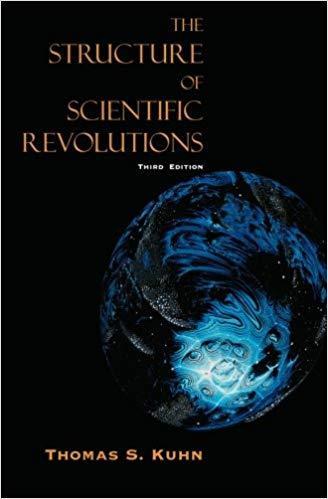
3.2 Thomas Kuhn – The Structure of Scientific Revolutions
About the Author: Thomas Kuhn was an American physicist and historian whose controversial 1962 book, The Structure of Scientific Revolutions, is still the most coherent attempt at questioning the absolute objectivity of scientific conclusions.
About the Book: The Structure of Scientific Revolutions is the book which, half a century ago, introduced an idiom now so common that it’s made quite a few appearances on TV: a paradigm shift. Kuhn used the term to refer to an event which causes such a fundamental change in a scientific discipline that it redefines its basic concepts; in Kuhn’s opinion, that’s precisely how progress happens: not in a linear, accumulative “puzzle-solving” way, but by way of revolutionary and unpredictable skips and jumps. (Read a brief summary of the book | Buy the book)
How It Can Change Your Life: By redefining for you the word “progress” and, possibly, by inspiring you to use your or other people’s errors to find out more about yourself or the world, instead of dismissing them as anomalies which hinder your understanding.
From the Reviews: “The Structure of Scientific Revolutions did a gestalt flip on just about every assumption about the who, how, and what of scientific progress” – Chronicle of Higher Education
A Relevant Quote: “Truth emerges more readily from error than from confusion.”
4. The Scientific Life
 4.1 James D. Watson – The Double Helix
4.1 James D. Watson – The Double Helix
About the Author: James Dewey Watson is an American molecular biologist, zoologist, and geneticist, best-known for discovering the programming language of Life, aka the structure of the DNA molecule; a decade later (together with Francis Crick and Maurice Wilkins), he was awarded the Nobel Prize in Physiology or Medicine.
About the Book: “Consistently ranked as one of the greatest books written about science in the past century,” The Double Helix (just as its subtitle suggests) is Watson’s incredibly personal account of his (and Francis Crick’s) discovery of the structure of DNA, unusually candid for any day and age; not many scientists would tell you that they’re in it for the glory, now, would they? (Read a brief summary of the book | Buy the book)
How It Can Change Your Life: By simultaneously shattering and – somehow – endorsing the myth of the mad scientist who works within an ethical framework of his own.
From the Reviews: “…a work that combines the plot line of a racy novel with deep insights about the nature of modern research.” – Robin McKie for The Guardian
A Relevant Quote: “One could not be a successful scientist without realizing that, in contrast to the popular conception supported by newspapers and mothers of scientists, a goodly number of scientists are not only narrow-minded and dull, but also just stupid.”
 4.2 James Gleick – Genius
4.2 James Gleick – Genius
About the Author: An American historian of science often described as “one of the great science writers of all time,” James Gleick is your real-life Dr. Ian Malcolm (and that’s not a joke!) and the man responsible for the explosion of butterfly-effect movie plots of the past three decades.
About the Book: As exceptional as James Gleick is, the man this book is about – Richard Feynman, an American theoretical physicist and Nobel laureate – eclipses him by far. A member of the Holy Trinity of 20th-century physics (with Einstein and Hawking), “he was not only a great scientist and a great clown but also a great human being and a guide in time of trouble.” (Freeman Dyson) “And whatever he understood, he could make others understand as well” (W. Daniel Hillis) (Read a brief summary of the book | Buy the book)
How It Can Change Your Life: If Richard Feynman’s life and work don’t inspire you to fall in love with science (whether for the first time or all over again) – believe me – nothing ever will.
From the Reviews: “Gleick’s Genius is a masterpiece of scientific biography – and an inspiration to anyone in pursuit of their own fulfillment as a person of genius.”
A Relevant Quote: “For him, knowledge did not describe; it acted and accomplished.”
5. Memoirs and Autobiographies
 5.1 Viktor Frankl – Man’s Search for Meaning
5.1 Viktor Frankl – Man’s Search for Meaning
About the Author: Viktor Frankl was an Austrian Holocaust survivor, who used his concentration camp survival experience to develop logotherapy, a personalized form of existential therapy still practiced in a number of institutes around the world.
About the Book: How do you survive an apocalyptic event the size and weight of the Holocaust? According to Viktor Frankl’s autobiographical account of his time as an Auschwitz inmate, the same way you do any of life’s great traumas: by creating a purpose for yourself and by imagining a future in which that purpose is met.
Against Adler’s Nietzschean-based will to power and Freud’s will to pleasure, Frankl here juxtaposes the much more humane (and Kierkegaardian) principle: will to meaning. (Read a brief summary of the book | Buy the book)
How It Can Change Your Life: The book’s original title is Trotzdem Ja Zum Leben Sagen which can be translated into English as Nevertheless, Say “Yes” to Life; they should have kept that one – since if there’s a book which can make you do that, it’s probably this one.
From the Reviews: “One of the great books of our time.” – Harold S. Kushner
A Relevant Quote: “When we are no longer able to change a situation, we are challenged to change ourselves.”
 5.2 Paul Kalanithi – When Breath Becomes Air
5.2 Paul Kalanithi – When Breath Becomes Air
About the Author: Paul Kalanithi was an Indian-American polymath: a cum laude neurosurgeon with an MA in English literature; he died, aged 38, from lung cancer, but not before authoring a book about how to live through it; or anything else, for that matter.
About the Book: An emotionally exhausting and heart-wrenchingly tender memoir, When Breath Becomes Air chronicles Paul Kalanithi’s “transformation from a naïve medical student ‘possessed… by the question of what, given that all organisms die, makes a virtuous and meaningful life’ into a neurosurgeon at Stanford working in the brain… and finally into a patient and new father confronting his own mortality.” (Read a brief summary of the book | Buy the book)
How It Can Change Your Life: By teaching you that although we cannot avoid suffering, we can cope with it; because, in the end, that’s what life actually is.
From the Reviews: “I guarantee that finishing this book and then forgetting about it is simply not an option… unmissable.” – Janet Maslin for The New York Times
A Relevant Quote: “I began to realize that coming face to face with my own mortality, in a sense, had changed nothing and everything. Seven words from Samuel Beckett began to repeat in my head: ‘I can’t go on. I’ll go on.”
6. Psychology
 6.1 Daniel Kahneman – Thinking, Fast and Slow
6.1 Daniel Kahneman – Thinking, Fast and Slow
About the Author: Widely considered one of the most influential living thinkers, Daniel Kahneman is an Israeli-American psychologist whose research in human behavior and decision-making won him the Nobel Memorial Prize in Economic Sciences in 2002.
About the Book: Building upon the ideas of Nassim Nicholas Taleb in the field of uncertainty/risk management, in Thinking, Fast and Slow – among other things – Daniel Kahneman further shakes the secure foundation upon which “our comforting conviction that the world makes sense” rests – i.e., “our almost unlimited ability to ignore our ignorance” – by categorizing and exemplifying all the different biases which mar our judgements, irrespective of whether they are the product of System 1 (automatic, fast, stereotypic, pattern-based) or System 2 (slow, calculating, deliberative, logical) thinking. (Read a brief summary of the book | Buy the book)
How It Can Change Your Life: By demonstrating – through a plethora of studies – when it makes sense to believe your intuition and when it doesn’t; by showing you – if sometimes merely via negative – numerous different ways you can use to trick your own brain into making more favorable decisions.
From the Reviews: “It is impossible to exaggerate the importance of Daniel Kahneman’s contribution to the understanding of the way we think and choose. He stands among the giants, a weaver of the threads of Charles Darwin, Adam Smith, and Sigmund Freud. Arguably the most important psychologist in history.” – Janice Gross Stein
A Relevant Quote: “Intelligence is not only the ability to reason; it is also the ability to find relevant material in memory and to deploy attention when needed.”
 6.2 Malcolm Gladwell – Outliers
6.2 Malcolm Gladwell – Outliers
About the Author: A staff writer for The New Yorker for more than two decades, Malcolm Gladwell is a Canadian journalist and non-fiction writer, famous as much for his singular talent for wedding interesting stories and interesting research to popularize all-but-forgotten social theories and concepts as for his public persona and messy bobdylanish hairdo. (Read some more about Malcolm Gladwell)
About the Book: In his third non-fiction book, Outliers, Malcolm Gladwell attempts to dispel “the biggest misconception about success” – namely that it is the result of “our smarts, ambition, hustle and hard work.”
Apparently – who would have guessed? – it is also the result of thousands of other factors, as diverse as whether you had access to a computer when nobody else had (Bill Gates) or were prominent enough to avoid being punished for attempting to poison one of your tutors (J. Robert Oppenheimer, apparently). (Read a brief summary of the book | Buy the book)
How It Can Change Your Life: By – once and for all – releasing you from the burden of groundless self-imposed expectations and helping you move away from the faux-pas notion that everything that happens to you is up to your determination, talent, and merits; by introducing you to the sometimes-it-may-work 10,000-hour rule.
From the Reviews: “The explosively entertaining Outliers might be Gladwell’s best and most useful work yet… There are both brilliant yarns and life lessons here: Outliers is riveting science, self-help, and entertainment, all in one book.” – Gregory Kirschling for Entertainment Weekly
A Relevant Quote: “No one – not rock stars, not professional athletes, not software billionaires, and not even geniuses – ever makes it alone.”
7. Health and Medicine
 7.1 Oliver Sacks – The Man Who Mistook His Wife for a Hat
7.1 Oliver Sacks – The Man Who Mistook His Wife for a Hat
About the Author: Described as “one of the great clinical writers of the 20th century” and a “poet laureate of contemporary medicine,” Oliver Sacks was a British neurologist and a celebrated author of numerous bestselling collections of case-studies, each of which highlights his knack for narrative detail and exceptional writing style as much as the breadth of his knowledge and the profoundness of his humanity.
About the Book: Even though Awakenings, his 1973 account of his work with survivors of the encephalitis lethargica epidemic of the Twenties, should arguably be the more famous one of the two (if not merely because of the eponymous 1990 Academy Award-nominated film starring Robert De Niro and Robin Williams), The Man Who Mistook His Wife for a Hat seems to be the book Oliver Sacks would be most fondly remembered by.
And that already says a lot about it.
A collection of “short narratives, essays, parables about patients with a great range of neurological and neuropsychiatric conditions,” The Man Who Mistook His Wife for a Hat demonstrates, over and over again, how much our perception of the world depends upon the proper functioning of our brain; and how difficult it is for us to notice when it is out of order. (Buy the book)
How It Can Change Your Life: By imparting on you the author’s life-long and almost self-evidential belief that the brain is the “most incredible thing in the universe;” by providing you with a list of unforgettable tales “so compelling that many of them serve as eerie metaphors not only for the condition of modern medicine but of modern man.”
From the Reviews: “One sees a wise, compassionate and very literate mind at work in these 20 stories, nearly all remarkable, and many the kind that restore one’s faith in humanity.” – Noel Perrin for Chicago Sun-Times
A Relevant Quote: “If a man has lost a leg or an eye, he knows he has lost a leg or an eye; but if he has lost a self – himself – he cannot know it, because he is no longer there to know it.”
 7.2 Robert Sapolsky – Why Zebras Don’t Get Ulcers
7.2 Robert Sapolsky – Why Zebras Don’t Get Ulcers
About the Author: Brooklyn-born child of Soviet immigrants, Robert A. Sapolsky is the John A. and Cynthia Fry Gunn Professor of Biological Sciences, Neurology and Neurological Sciences at Stanford University and – in the words of none other than the above-mentioned Oliver Sacks – “one of the best science writers of our time.”
About the Book: In the alluringly titled 600-page Why Zebras Don’t Get Ulcers, justly beloved primatologist and Stanford professor Robert Sapolsky “wittily dissects the anatomy of the human stress-response” by demonstrating not only how unavoidably it is engrained in the primeval fight-or-flight mechanism, but also how difficult it is for humans to control it in the absence of actual dangers and how easy it is to trigger it in the presence of an imaginative brain. (Read a brief summary of the book | Buy the book)
How It Can Change Your Life: By teaching you everything you need to know about stress and stress-related diseases, by scientifically reviewing for you all the relevant literature on stress management, and by showing you “how some of its principles can be applied to our everyday lives.”
Also – by explicitly prompting you to throw away most of the other stress-related books you own, because, unlike what the majority of them claims, it is not “in our power to cure ourselves of all our worst medical nightmares merely by reducing stress and thinking healthy thoughts full of courage and spirit and love.”
From the Reviews: “Filled with delightful twists and turns, personal anecdotes, and nuggets of odd information—on voodoo death, Peter Pan, and the hunting skills of hyenas… First-rate science for the nonscientist.” – Kirkus Reviews
A Relevant Quote: “In our privileged lives, we are uniquely smart enough to have invented these stressors and uniquely foolish enough to have let them, too often, dominate our lives. Surely we have the potential to be uniquely wise enough to banish their stressful hold.”
8. Biology
 8.1 Charles Darwin – On the Origin of Species
8.1 Charles Darwin – On the Origin of Species
About the Author: Undoubtedly one of the most influential humans to have ever lived, Charles Darwin was the penultimate of six children of a wealthy doctor and the grandson of two prominent anti-slavery activists, Erasmus Darwin and Josiah Wedgewood.
After neglecting both his medical and religious studies, a five-year voyage on the HMS Beagle helped Darwin establish himself first as a leading geologist of his time and then as one of the originators (together with Alfred Russel Wallace) of the theory of evolution, the unifying concept of the life sciences.
About the Book: Published on 24 November 1859, On the Origin of Species presented before the bewildered academic world of the 19th century, Charles Darwin’s innovative interpretation of the mechanisms by which speciation occurs.
“Owing to [the] struggle for life” – he sums it up in the third chapter, “any variation, however slight and from whatever cause proceeding, if it be in any degree profitable to an individual of any species, in its infinitely complex relations to other organic beings and to external nature, will tend to the preservation of that individual, and will generally be inherited by its offspring.”
Mostly based on evidence he had gathered during the Beagle expedition of the 1830s, the book inspired a heated debate, which in no more than two decades, resulted in the majority of the educated public accepting Darwin’s theory as a fact; the United States is one of the very few countries in the world where this is not the case. (Read a brief summary of the book | Buy the book)
How It Can Change Your Life: By enlightening you that it is not God who works in mysterious ways – but Nature in rather palpable ones; and by teaching you a lesson in humbleness, since “Natural Selection… is a power incessantly ready for action, and is immeasurably superior to man’s feeble efforts, as the works of Nature are to those of Art.”
From the Reviews: “The supreme demonstration of why academic books matter… a book which has changed the way we think about everything” – conclusions from a 2015 survey which voted On the Origin of Species “the most influential academic book ever written.”
A Relevant Quote: “There is grandeur in this view of life, with its several powers, having been originally breathed into a few forms or into one; and that, whilst this planet has gone cycling on according to the fixed law of gravity, from so simple a beginning endless forms most beautiful and most wonderful have been, and are being, evolved.”
 8.2 Richard Dawkins – The Selfish Gene
8.2 Richard Dawkins – The Selfish Gene
About the Author: When he is not receiving prestigious awards and debating publicly with different kinds of clerics and priests on all matters of religion and the Bible, Richard Dawkins is an emeritus fellow of New College, Oxford and such a widely respected ethologist and evolutionary biologist that, in a recent public poll conducted by the Royal Society, he even managed to see off Darwin in vote for most influential science book ever.
About the Book: Famous as the book which introduced generations of Internet users to the neologism meme – in fact, an extremely debatable, possibly even “his most famous memorable invention” (James Gleick) – Richard Dawkins’ 1976 masterpiece, The Selfish Gene, popularized a gene-centered view of evolution according to which “all life evolves by the differential survival of replicating entities.”
That’s a complicated and all too technical way of saying what Samuel Butler once put a little more bluntly and delicately as “a hen is only an egg’s way of making another egg.” There may be a ghost in the shell, after all. (Read a brief summary of the book | Buy the book)
How It Can Change Your Life: By opening your mind to the possibility of a Darwinian evolution which happens outside your genes (in the realm of the culture-based memes), all the while reminding you that you are, at the most basic level, merely a highly sophisticated tool your genes have produced to replicate themselves; wear that crown proudly, o human!
From the Reviews: “It is, in my view, the best work of popular science ever written.” – H. Allen Orr for New York Review of Books
A Relevant Quote: “We are survival machines-robot vehicles blindly programmed to preserve the selfish molecules known as genes. This is a truth which still fills me with astonishment.”
9. Ecology
 9.1 Rachel Carson – Silent Spring
9.1 Rachel Carson – Silent Spring
About the Author: The woman that launched a thousand environmental movements, Rachel Louise Carson was an American marine biologist and conservationist, whose critically lauded and lyrically written sea trilogy – The Sea Around Us, The Edge of the Sea and Under the Sea Wind – would have, in itself, secured her a place in history, had not Silent Spring been so influential to actually change its course.
About the Book: Originally published in three serialized excerpts in the New Yorker and, Silent Spring “touched off a national debate on the use of chemical pesticides, the responsibility of science, and the limits of technological progress.
When Carson died barely eighteen months later in the spring of 1964, at the age of fifty-six, she had set in motion a course of events that would result in a ban on the domestic production of DDT and the creation of a grass-roots movement demanding protection of the environment through state and federal regulation.
Carson’s writing initiated a transformation in the relationship between humans and the natural world and stirred an awakening of public environmental consciousness.” (Linda Lear, from the “Introduction”) (Read a brief summary of the book | Buy the book)
How It Can Change Your Life: By showing you that humans are nothing more but a fragment of an interconnected world and that everything you do to Nature – in the long term – you do to yourself as well.
From the Reviews: “Silent Spring altered the balance of power in the world. No one since would be able to sell pollution as the necessary underside of progress so easily or uncritically.” – H. Patricia Hynes
A Relevant Quote: “How could intelligent beings seek to control a few unwanted species by a method that contaminated the entire environment and brought the threat of disease and death even to their own kind?”
 9.2 Elizabeth Kolbert – The Sixth Extinction
9.2 Elizabeth Kolbert – The Sixth Extinction
About the Author: A staff writer for The New Yorker ever since 1999, Elizabeth Kolbert is a “masterful, thought-provoking reporter,” visiting fellow at Williams College and author of two books on the most pertinent – because ongoing – environmental events of our age: climate change (Field Notes from a Catastrophe) and the Anthropocene extinction (The Sixth Extinction).
About the Book: The 2015 Pulitzer Prize winner for General Non-Fiction, The Sixth Extinction interweaves research in quite a few disciplines to simultaneously document the five extinctions which dramatically changed the face of our planet in the distant past and alert that we are currently living in the midst of the sixth one which, unlike all previous ones, can be stopped – because this time it is not asteroids which are causing it, but none other than ourselves. (Read a brief summary of the book | Buy the book)
How It Can Change Your Life: By making you wonder what it means to be a human if it doesn’t live in harmony and peace with the only planet that (as far as we know) makes life possible.
From the Reviews: “Elizabeth Kolbert’s revelatory new book, The Sixth Extinction, about the rapid and radical changes man is wreaking on the Earth, is one of those works of explanatory journalism that achieves the highest and best use of the form. After you read it, your view of the world will be fundamentally changed.” – Mary Ann Gwinn for The Seattle Times
A Relevant Quote: “Though it might be nice to imagine there once was a time when man lived in harmony with nature, it’s not clear that he ever really did.”
10. Anthropology
 10.1 Yuval Noah Harari – Sapiens
10.1 Yuval Noah Harari – Sapiens
About the Author: Yuval Noah Harari is an Israeli historian with a PhD degree from the University of Oxford, whose specialty in world, medieval and military history evolved over time to encompass some innately anthropological themes, such as how much human history has been affected by human biology, to what extent the latter differentiates homo sapiens from all other species and, most significantly, have either of them ever progressed in the direction of making us happier beings.
About the Book: An international bestseller warmly recommended by the likes of Barack Obama, Bill Gates and Mark Zuckerberg, Sapiens has already acquired a cult status – even in spite of the fact that it has been justly criticized for quite a few oversimplifications and generalizations.
However, its central thesis – that we rule the world not because we are that biologically superior, but because we are the only animals capable of believing in things that exist purely in our own imagination, “such as gods, states, money and human rights” – even if not especially new, is just too provocative and too lucidly laid out to be passed over in silence. (Read a brief summary of the book | Buy the book)
How It Can Change Your Life: By giving you a perspective on how your homo sapiens ancestors managed to supplant the other human species and how they transformed from animals of no significance into apex predators destined to become gods mostly through the use of myths and lies.
From the Reviews: “Sapiens tackles the biggest questions of history and of the modern world, and it is written in an unforgettably vivid language” – Jared Diamond
A Relevant Quote: “You could never convince a monkey to give you a banana by promising him limitless bananas after death in monkey heaven.”
 10.2 James Suzman – Affluence Without Abundance
10.2 James Suzman – Affluence Without Abundance
About the Author: Great-nephew of renowned liberal politician and anti-apartheid activist Helen Suzman, James Suzman is a Cambridge-based South African anthropologist, the first to ever work among the Southern Ju/’hoansi of Namibia.
About the Book: Part ethnography, part memoir, Affluence Without Abundance vividly and hauntingly registers the last remnants of the disappearing world of the Bushmen and recounts the problematic transition through which the communities of Namibia were pressed to go when their ancient hunter-gatherer world collided with the global economic movements of the modern age.
Suzman skillfully appends to this affectionate and sympathetic portrait numerous asides on the consequences of the agricultural revolution on the most intimate of our current beliefs and worldviews which eventually evolve into some of the most thought-provoking reflections on topics as modern and diverse as progress and equality, workweeks and money. (Read a brief summary of the book | Buy the book)
How It Can Change Your Life: By challenging all of your ideas about the hunter-gatherer societies of the past; by introducing you to one – the original affluent society – which should question not only your long-term objectives but also the very foundation of your current life and your relentless pursuit for something more.
From the Reviews: “An insightful and well-written book [which] chronicles how economics and politics have finally conquered some of the last outposts of hunter-gatherers, and how much humankind can still learn from the disappearing way of life of the most marginalized communities on earth.” – Yuval Noah Harari
A Relevant Quote: “For hunter-gatherers the sum of individual self-interest and the jealousy that policed it was a fiercely egalitarian society where profitable exchange, hierarchy, and significant material inequality were not tolerated.”
11. Mythology
 11.1 James Frazer – The Golden Bough
11.1 James Frazer – The Golden Bough
About the Author: One of the very few people capable of writing a 12-volume footnote “to a line in Virgil he felt he did not understand” (Weston La Barre on The Golden Bough) and a “mere ‘essay’ of some 240 pages… as light recreation, suitable for the leisure of a scholar” (H. J. Rose on Myths of the Origin of Fire), James George Frazer was a Scottish classicist, comparative mythologist, and scholar of religion, widely considered one of the founding fathers of modern anthropology as well.
About the Book: Originally published in two volumes in 1890, The Golden Bough expanded sixfold by the time the world engaged in the first of the two great 20th-century wars, only to be abridged in a 1000-page single-volume mass-public edition by Frazer himself in 1922.
Even this latter version – bereaved of its capacious bibliography and precious index – is such a triumph of scholarship and imaginativeness that a host of intellectual (mostly literary) giants (Freud, Eliot, Yeats, Graves) were capable of looking past Frazer’s imperialistic worldview to dig up from it metaphors much larger and more profound than truth itself.
Two of the book’s main ideas – the ritual sacrifice of the dying king and mankind’s gradual progress from magic through religion to science – have gone on to live a life of their own, surviving to this day in more than one sphere and shape. (Buy the book)
How It Can Change Your Life: By taking you on “a voyage of discovery, in which [you] shall visit many strange lands, with strange foreign peoples, and still stranger customs;” by marking out a new territory for your imagination and creativity.
From the Reviews: “The 12 volumes of Sir James George Frazer’s The Golden Bough (1890-1915), interweaving European antiquity with tribal societies, was a model of intriguing specificity wed to speculative imagination. Though many details in Frazer have been contradicted or superseded, the work of his Cambridge school of classical anthropology… will remain inspirational for enterprising students seeking escape from today’s sterile academic climate.” – Camille Paglia
A Relevant Quote: “The principles of association are excellent in themselves, and indeed absolutely essential to the working of the human mind. Legitimately applied they yield science; illegitimately applied they yield magic, the bastard sister of science.”
 11.2 Joseph Campbell – The Hero with a Thousand Faces
11.2 Joseph Campbell – The Hero with a Thousand Faces
About the Author: A long-time professor of literature at Sarah Lawrence College, Joseph Campbell was considered “the world’s most famous practitioner of comparative mythology” (Ron Hogan) during most of the second half of his life; in the last year of it, he conducted a series of interviews with journalist Bill Moyers which were released shortly after his death on October 30, 1987, as a six-episode PBS documentary; titled Joseph Campbell and the Power of Myth, the series remains “one of the most popular… in the history of public television.”
About the Book: Corroborated by abundant mythical evidence from all sides and corners of the world, The Hero with a Thousand Faces is a book-length delineation of the structure of the monomyth – that is, the archetypal narrative of the hero who embarks on an adventurous journey so that he can win a decisive victory against some fabulous forces and then come back to his community intensely transformed and “with the power to bestow a boon upon his fellow man.”
In the less popular second part of the book, Campbell explores the arche-story of the cosmogonic cycle, the chaos/order pattern which underlines the of mythical thinking. (Read a brief summary of the book | Buy the book)
How It Can Change Your Life: By demonstrating how alike humans actually are and how so many seemingly diverse tales can be reduced – nay, expanded – to “one, shape-shifting yet marvelously constant story;” by inspiring you to transform your very own life into a “follow-your-bliss” adventure through forests of symbols, joined by poets and artists as your magical interpreters.
From the Reviews: “In the three decades since I discovered The Hero with a Thousand Faces, it has continued to fascinate and inspire me. Joseph Campbell peers through centuries and shows us that we are all connected by a basic need to hear stories and understand ourselves. As a book, it is wonderful to read; as illumination into the human condition, it is a revelation.” – George Lucas
A Relevant Quote: “A hero ventures forth from the world of common day into a region of supernatural wonder: fabulous forces are there encountered, and a decisive victory is won: the hero comes back from this mysterious adventure with the power to bestow boons on his fellow man.”
12. History
 12.1 Arnold J. Toynbee – A Study of History
12.1 Arnold J. Toynbee – A Study of History
About the Author: A nephew of the 19th-century working-class economist and his namesake, Arnold Toynbee was an extremely prolific British historian and philosopher of history, a leading specialist on international affairs, and – for much of the twentieth century – “perhaps the world’s most read, translated, and discussed living scholar.” (Michael Lang)
About the Book: Published between 1934 and 1961 in twelve volumes and spanning to more than 7,000 pages and 3 million words, Arnold Toynbee’s magnum opus, A Study of History, traces the rise and fall of nineteen major, four abortive and five arrested civilizations.
Hailed by contemporaries as “one of the greatest achievements of modern scholarship” and “a work of breath-taking breadth and vision,” the book’s attempt to superimpose a purifying cyclic understanding of the courses of history made it both a popular and an academic phenomenon in the despairing years following the Second World War; even nowadays, when it has been somewhat unfairly forgotten, it “has been praised as a stimulating answer to the specializing tendency of modern historical research.” (Buy the book)
How It Can Change Your Life: By either encouraging you to work toward not repeating the mistakes of our predecessors (nationalism, military, tyranny) or by finally convincing you that – in Shaw’s words – the only thing we learn from history is that we learn nothing from history.
From the Reviews: “…the most provocative work of historical theory written in England since Karl Marx’s Capital” – Time
A Relevant Quote: “The nature of the breakdowns of civilizations can be summed up in three points: a failure of creative power in the minority, an answering withdrawal of mimesis on the part of the majority, and a consequent loss of social unity in the society as a whole.”
 12.2 Eric Hobsbawm – The Age of Extremes
12.2 Eric Hobsbawm – The Age of Extremes
About the Author: Born in Alexandria, Egypt, and raised in Vienna and Berlin, Eric John Ernest Hobsbawm was adopted by relatives after the death of his mother in 1931 (his father had died two years before) and moved to London with them just two years later, following Hitler’s rise to power in Germany.
In the years which followed he received a doctorate from Cambridge, developed a decidedly Marxist outlook, became an emeritus professor and president of Birkbeck, University of London, and grew to be “one of the few genuinely grand historians of our century.”
About the Book: A sequel to the trilogy on the long 19th century – The Age of Revolution: Europe 1789–1848, The Age of Capital: 1848–1875 and The Age of Empire: 1875–1914 – Eric Hobsbawm’s The Age of Extremes covers the short twentieth century, demarcated between the start of the First World War (1914) and the fall of the Soviet Union (1991).
An in-depth analysis of the collapse of nationalism and state socialism, intermixed with Hobsbawm’s obligatory criticism of free-market capitalistic societies and his knowledgeable observations on the history of the arts, The Age of Extremes is a fundamentally pessimistic take not only on humanity’s recent past, but also on what the future may hold for it in the long run. (Buy the book)
How It Can Change Your Life: By showing you that history is not the same as historiography and that the latter allows for many different interpretations – only one of which you’ve been taught at school.
From the Reviews: “A magical re-creation of the most creative and destructive, the most utopian and most doubt-ridden period of human history… I know of no other account that sheds as much light on what is now behind us, and thereby casts so much illumination on our possible futures.” – Robert Heilbroner
A Relevant Quote: “Those of us who lived through the years of the Great Slump still find it almost impossible to understand how the orthodoxies of the pure free market, then so obviously discredited, once again came to preside over a global period of depression in the late 1980s and 1990s, which once again, they were equally unable to understand or to deal with.”
13. Geography
 13.1 Jared Diamond – Guns, Germs, and Steel
13.1 Jared Diamond – Guns, Germs, and Steel
About the Author: One of the finest specimens of the modern Renaissance Man, Jared Diamond is a professor of geography at UCLA with a Ph.D. in physiology from Trinity College, Cambridge, and a Pulitzer Prize-winning author of several books which illustrate his extensive knowledge and understanding of many related areas, biology, ecology, and anthropology especially.
About the Book: “In short,” – writes at one place Jared Diamond, summarizing most of his “artful, informative, and delightful” transdisciplinary masterwork, Guns, Germs, and Steel – “Europe’s colonization of Africa and America had nothing to do with differences between European and African peoples themselves, as white racists assume.
Rather, it was due to accidents of geography and biogeography — in particular, to the continents’ different areas, axes, and suites of wild plant and animal species.”
A short history of everybody for the last 13,000 years, Guns, Germs, and Steel is a constant reminder that what we refer to as geography is, from a more celestial point of view, the genetic structure of our planet – and it is only natural that we should recognize it as defining influence on the fates of human societies. (Read a brief summary of the book | Buy the book)
How It Can Change Your Life: By supplying you with “a rock-solid alternative” to the racist conception of history (Alfred W. Crosby); by showing you that there are scientific whys and wherefores to take heed of the advice Nick Carraway gets from his father long before the beginning of The Great Gatsby:
“Whenever you feel like criticizing anyone, just remember that all the people in this world haven’t had the advantages that you’ve had.”
From the Reviews: “An epochal work. Diamond has written a summary of human history that can be accounted, for the time being, as Darwinian in its authority.” – Thomas M. Disch, The New Leader
A Relevant Quote: “History followed different courses for different peoples because of differences among peoples’ environments, not because of biological differences among peoples themselves.”
 13.2 Eric Weiner – The Geography of Bliss
13.2 Eric Weiner – The Geography of Bliss
About the Author: A former foreign correspondent for NPR, Eric Weiner is the author of three part-memoirs part-travelogues, a “Woody Allen channeling Karen Armstrong” while searching for God (Man Seeks God), a Bill Bryson with the disposition of a Winslow Homer while searching for the smartest (The Geography of Genius) or the happiest place on earth (The Geography of Bliss).
About the Book: In The Geography of Bliss, self-described “grump” Eric Weiner travels around the globe to find out how other people define happiness and which is the happiest place on Earth: the Netherlands, Switzerland, Bhutan, Qatar, Iceland, Thailand, Great Britain, India, or America (he also travels to Moldova – but only for the sake of contrast).
His conclusions sound as obvious and anticlimactic as the ending of Monty Python’s Meaning of Life: “Money matters but less than we think and not in the way that we think.
The family is important. So are friends. Envy is toxic. So is excessive thinking. Beaches are optional. Trust is not. Neither is gratitude.” However – the conclusions are not the point as cliché as this may sound, they are not nearly as fun as the journey. (Buy the book)
How It Can Change Your Life: By showing you that happiness can be – but is not necessarily – a place; by teaching you that it is neither a noun or verb – but “a conjunction; a connective tissue… completely and utterly intertwined with other people;” by providing you with “a simple question to identify your true home: where do you want to die?”
From the Reviews: “By turns hilarious and profound, this is the kind of book that could change your life. The relationship between place and contentment is an ineffable one, and Weiner cuts through the fog with a big, powerful light.” – Henry Alford
A Relevant Quote: “I’ve always believed that happiness is just around the corner. The trick is finding the right corner.”
14. Economics
 14.1 Gregory Clark – A Farewell to Alms
14.1 Gregory Clark – A Farewell to Alms
About the Author: A professor of economics at the University of California, Davis, Gregory Clark is an economic historian interested in the nature of social mobility and – at least as evidenced by his modest oeuvre (A Farewell to Alms and The Son Also Rises) – making half-successful puns on the titles of Ernest Hemingway novels.
About the Book: By Clark’s own admission, his thought-provoking debut A Farewell to Alms “is an unabashed attempt at big history, in the tradition of The Wealth of Nations, Das Kapital, The Rise of the Western World, and most recently Guns, Germs, and Steel.”
Its big idea is as simple as it is controversial. Namely, before the Industrial Revolution, humanity stagnated in a Malthusian trap for hundreds of thousands of years: technology improved too slowly and though it enabled better living conditions in the short-term.
It also ensured population growth, which, in the long-term, brought things back to status quo. However, after the Industrial Revolution, that all changed in the rich nations of today, but mostly because of the under-researched phenomenon of downward social mobility: the children of the rich took over the positions of the poor (whose number decimated due to diseases, wars, and rapid progress) and brought with them middle-class values (education, hard work, rationality) which, in turn, ensured future progress. Read a brief summary of the book | Buy the book)
How It Can Change Your Life: By casting doubts on some of the foundational assumptions of economics; by inviting you to (yet again!) question the nature of progress and the real point of pursuing it in the face of two startling and contradictory facts: “wealth has not brought happiness,” but, nevertheless, since “we are… descendants of the strivers of the pre-industrial world… modern man might not be designed for contentment.”
From the Reviews: “Right or wrong, or perhaps somewhere in between, Clark’s is about as stimulating an account of world economic history as one is likely to find. Let’s hope that the human traits to which he attributes economic progress are acquired, not genetic and that the countries that grow in population over the next 50 years turn out to be good at imparting them.
Alternatively, we can simply hope he’s wrong.” – Benjamin M. Friedman for the New York Times Book Review
A Relevant Quote: “The basic outline of world economic history is surprisingly simple.”
 14.2 Thomas Piketty – Capital in the 21st Century
14.2 Thomas Piketty – Capital in the 21st Century
About the Author: “Arguably the world’s leading expert on income and wealth inequality,” Thomas Piketty is a French economist who holds a chair at both the Paris and London Schools of Economics; widely considered one of the essential thinkers of the left, he is one of the most coherent and discussed critics of capitalism currently active.
About the Book: A publishing miracle – its English translation is the most sought-after book ever published by the Harvard University Press – Thomas Piketty’s Capital in the 21st Century presents a large body of empirical evidence spanning almost three centuries and proving that the rate of capital in developed countries is consistently greater than the rate of economic growth, a phenomenon Percy Shelley once laconically described as “the rich have become richer, and the poor have become poorer.”
In the words of Nobel laureate Paul Krugman, Piketty “does more than document the growing concentration of income in the hands of a small economic elite. He also makes a powerful case that we’re on the way back to ‘patrimonial capitalism,’ in which the commanding heights of the economy are dominated not just by wealth, but also by inherited wealth, in which birth matters more than effort and talent.” (Read a brief summary of the book | Buy the book)
How It Can Change Your Life: By showing you that – as far as data is concerned – Marx’s predictions of the future weren’t far off; by presenting a strong case that economic inequality isn’t just an accident but a feature of capitalism and that, consequently, our supposedly most advanced economic system may be a threat to democracy by design.
From the Reviews: “It seems safe to say that Capital in the Twenty-First Century, the magnum opus of the French economist Thomas Piketty, will be the most important economics book of the year―and maybe of the decade.” – Paul Krugman for New York Times
A Relevant Quote: “The poorest half of the population still owns nothing, but there is now a patrimonial middle class that owns between a middle and a third of total wealth, and the wealthiest ten percent now own only-two thirds of what there is to own rather than nine-tenths.”
Capital in the Twenty-First Century
15. Markets and Money
 15.1 Benjamin Graham – The Intelligent Investor
15.1 Benjamin Graham – The Intelligent Investor
About the Author: A British-born American investor and economist, Benjamin Graham is widely acclaimed as “the father of value investing” and the author of two of the foundational texts of neoclassical investing: Security Analysis (with David Dodd) and The Intelligent Investor; Graham is also known as the mentor of quite a few giants in the world of investing, among them his favorite student and long-time protégé, Warren Buffett.
About the Book: Published in 1949 and hailed as “the stock market bible” ever since, The Intelligent Investor is not a “get-rich-in-short-time” manual for day traders and speculators, but “avert-risk-to-profit-in-the-long-term” handbook for true investors.
Graham’s wise examination of the market fluctuations and his memorable, aphoristically-styled advices – “investing isn’t about beating others at their game; it’s about controlling yourself at your own game” or people who invest make money for themselves.
People who speculate make money for their brokers” – have inspired numerous investors worldwide, teaching them the most important lesson of investing: loss minimization trumps profit maximization in nine out of ten cases. Fool yourself that you’re the one at your own peril. (Read a brief summary of the book | Buy the book)
How It Can Change Your Life: By introducing you to the whims of the manic-depressive Mr. Market – and teaching you that even if risks sometimes pay off, patience and reason always do, so it’s only reasonable to ground both your investment strategies and your life projects in the latter.
From the Reviews: “By far the best book on investing ever written” – Warren Buffett
A Relevant Quote: “The intelligent investor is a realist who sells to optimists and buys from pessimists.”
 15.2 John Kenneth Galbraith – A Short History of Financial Euphoria
15.2 John Kenneth Galbraith – A Short History of Financial Euphoria
About the Author: One of the few people to receive both the Medal of Freedom and its successor, the Presidential Medal of Freedom, John Kenneth Galbraith was a Canadian-born economist and diplomat; a one-time US Ambassador to India, a long-time Harvard faculty member, and a leading proponent of post-Keynesian American liberalism.
Galbraith was one of the most recognizable Cold War-era public intellectuals, simultaneously acclaimed and criticized for his economic theories, best exemplified by his 1950-60s trilogy– American Capitalism, The Affluent Society, and The New Industrial State.
About the Book: According to John Kenneth Galbraith, “there is nothing in economic life so willfully misunderstood as the great speculative episode.” And though in the fairly brief Short History of Financial Euphoria – a book which draws heavily on the first three chapters of Charles Mackay’s marvelous 1841 classic, Extraordinary Popular Delusions and the Madness of the Crowds, Galbraith tries his best to make these episodes more comprehensible (especially for the general public) he eventually reaches a somewhat defeatist conclusion.
Namely, that “recurrent speculative insanity and the associated financial deprivation and larger devastation are… inherent in the system” because the factors which contribute to them are inherent features of the human nature: short-term fiscal memory, a fallacious link between wealth and intellect, and habitual disbelief in the pessimistic prophecies. (Read a brief summary of the book | Buy the book)
How It Can Change Your Life: By, hopefully, teaching to stay away from possible bubbles, be they as tempting as dotcoms or as promising as Bitcoins; because “not only fools but quite a lot of other people are recurrently separated from their money in the moment of speculative euphoria.”
From the Reviews: “Financial Euphoria is a keeper, the sort of book you’ll recommend to other investors. It is brief, readable, with a statesman-like style, yet not above the heads of small investors.” – Greg Heberlein for The Seattle Times
A Relevant Quote: “Speculation buys up, in a very practical way, the intelligence of those involved.”
16. Politics
 16.1 Plato – The Republic
16.1 Plato – The Republic
About the Author: Plato, the man who practically invented philosophy – and, more or less, Socrates – is widely considered “one of the most dazzling writers in the Western literary tradition and one of the most penetrating, wide-ranging, and influential authors in the history of philosophy… Few other authors… approximate him in depth and range: perhaps only Aristotle (who studied with him), Aquinas and Kant would be generally agreed to be of the same rank.” (Stanford Encyclopedia of Philosophy)
About the Book: Possibly the most hotly debated book in the history of written texts – simultaneously described as a recipe for totalitarianism and the greatest contribution to the field of political philosophy ever – Plato’s Republic may be much less a discussion of the character and order of the just city-state than a romantic – and, ultimately, failed.
An attempt by Socrates to defend the inherent goodness of humans by ascribing their more animalistic traits to the dysfunctionality of the systems which structure their complex interrelations.
Even so, Plato – obviously a proto-Talebian skin-in-the-game proponent – will ultimately wind up a slave trying to put its ideas into practice in Syracuse, leaving generations of scholars bewildered and burdened by the difficult-to-grasp notion that one of history’s greatest philosophers may have been wrong about almost everything in his most important work. (Read a brief summary of the book | Buy the book)
How It Can Change Your Life: By drawing your attention to the impassable abysses which stand between theory and practice, and by making you wonder whether we are capable of even imagining a fully functional political system better than the one we currently live in.
From the Reviews: “No one should think of going to a liberal arts college without reading Plato’s Republic. It is one of the basic books of the European mind and culture.” – John Ciardi
A Relevant Quote: “The heaviest penalty for declining to rule is to be ruled by someone inferior to yourself.”
 16.2 Jonathan Haidt – The Righteous Mind
16.2 Jonathan Haidt – The Righteous Mind
About the Author: A professor of ethical leadership at New York University’s Stern School of Business, Jonathan Haidt is an American psychologist often listed as one of the world’s top thinkers and extensively cited for his research into the nature and mechanisms of morality, which, in his opinion, is an after-the-fact rationalization and justification of our primarily intuitive decisions.
About the Book: Jonathan Haidt’s The Righteous Mind is the book which popularized the Moral Foundations theory, a social psychological model which the author has co-developed with Jesse Graham by building upon the work of American cultural anthropologist Richard Shweder.
However, the most earth-shattering observation of the book is not that the foundations of our ethical behavior may be firmly rooted in the solutions (care, fairness, liberty, loyalty, authority, sanctity) our hunter-gatherer ancestors were compelled to devise to solve problems (harm, cheating, oppression, betrayal, subversion, degradation) which threatened to tear down their societies.
It is the notion that, if so, morality is inherently contradictory, and no political or religious ideology could ever encompass all of its foundations, making polarization the rule of our interhuman interactions, rather than the exception. (Read a brief summary of the book | Buy the book)
How It Can Change Your Life: By reminding you that you are probably living in an outlier WEIRD society (Western, Educated, Industrialized, Rich, Democratic) and that your notion of morality is much more individualized than the one which has made us who we are; by teaching you that “understanding the simple fact that morality differs around the world, and even within societies, is the first step toward understanding your righteous mind.”
From the Reviews: “A landmark contribution to humanity’s understanding of itself” – The New York Times Book Review
A Relevant Quote: “People bind themselves into political teams that share moral narratives. Once they accept a particular narrative, they become blind to alternative moral worlds.”
17. Sex
 17.1 Jared Diamond – Why Is Sex Fun?
17.1 Jared Diamond – Why Is Sex Fun?
About the Author: See under 13.1.
About the Book: Part of Basic Books’ Science Masters series, Jared Diamond’s Why Is Sex Fun? is a fairly brief – but highly instructive and immensely enjoyable – booklet which uses a lot of wit and memorable examples and parallels to summarize the evolution of human sexuality in about one hundred and fifty pages.
The question in the title is merely one of the many as taken-for-granted and as thought-provoking which Diamond tries to dissect and answer here. Some of the others include: why do we have sex in private rather than in public?
Why, instead of visibly advertising their own fertility, human females are unaware of their ovulations themselves? Why are they practically the only mammal which goes through such ostensibly antievolutionary phase such as menopause?
And why don’t males go through an analogous phase as well? All in all – why is human sexuality so abnormal when compared to the practices of the world’s thirty million other animal species?
Or, to rephrase that in a form which resonates back to the title of the book: why do we have sex for something other than reproduction? (Read a brief summary of the book | Buy the book)
How It Can Change Your Life: By opening your eyes to the strangeness of our sexual behavior; by showing you that it is that very strangeness which made us who we are today.
From the Reviews: “The best book on the subject I’ve read… Fascinating reading for anyone curious about why lovers do what they do.”
A Relevant Quote: “Perhaps our greatest distinction as a species is our capacity, unique among animals, to make counter-evolutionary choices.”
 17.2 Christopher Ryan and Cacilda Jethá – Sex at Dawn
17.2 Christopher Ryan and Cacilda Jethá – Sex at Dawn
About the Authors: Christopher Ryan is an American with a BA in English and American Literature and an MA and Ph.D. in psychology. Sex at Dawn builds upon Ryan’s doctoral dissertation (“Human Sexual Behavior in the Pleistocene: A Challenge to the Standard Model of Human Evolution”) done under the supervision of Stanley Krippner.
Born to second-generation Indian immigrants in war-torn Mozambique, but schooled (in both psychiatry and occupational medicine) in Portugal, Cacilda Jethá – to use her own words – “has an Indian face, a European education, and an African soul.”
About the Book: Once again – just like James Suzman’s Affluence Without Abundance (see 10.2) – invoking the idea that the agricultural revolution not only irretrievably changed us but also made us unjustly blind to the ethos of the earlier (and longer-lasting) civilizations.
Sex at Dawn challenges the standard model of human evolution, by arguing that in the fiercely egalitarian societies of our hunter-gatherer ancestors, sex was not an exchangeable commodity (part of the fidelity for protection transaction), but a shared communal experience, revolving more around practices such as polygamy and bonding than around coupledom and jealousy. (Read a brief summary of the book | Buy the book)
How It Can Change Your Life: By making you see that “our evolved sexuality is in direct conflict with many aspects of the modern world” and that “the contradictions between what we’re told we should feel and what we actually do feel generates a huge amount of unnecessary suffering.
Become more tolerant toward yourself and toward others; by “finally putting to rest the idea that men have some innate, instinctive right to monitor and control women’s sexual behavior.”
From the Reviews: “A wonderfully provocative and well-written book which completely re-evaluates human sexual behavior and gets to the root of many of our social and psychological ills.” – Christopher Ryan and Cacilda Jethá
A Relevant Quote: “Before the war on drugs, the war on terror, or the war on cancer, there was the war on female sexual desire. It’s a war that has been raging far longer than any other, and its victims’ number well into the billions by now.
Like the others, it’s a war that can never be won, as the declared enemy is a force of nature. We may as well declare war on the cycles of the moon.”
18. Feminism
 18.1 Virginia Woolf – A Room of One’s Own
18.1 Virginia Woolf – A Room of One’s Own
About the Author: The seventh child in an affluent stepfamily of eight – her mother was a Pre-Raphaelite model and her father a distinguished intellectual and agnostic – Virginia Woolf is commonly considered not only one of the undisputable colossi of modernism, but also one of the most influential thinkers of the 20th century.
The author of some of the most sublime and lyrically-enthused English-language novels in history (Mrs. Dalloway, To the Lighthouse, Orlando, The Waves), Virginia Woolf was – to paraphrase a plaque honoring her on a King’s College building bearing her name.
A lifelong advocate for universal access to education, whose deeply-held feminism, pacifism and anti-fascism found deep roots in her unwavering belief that every individual should be granted intellectual freedom and the same amount of rights to the fruits of human culture and philosophy.
About the Book: Based on two lectures she delivered to the Arts Society at Newnham and to the Odtaa at Girton College in October 1928, and published exactly a year later, A Room of One’s Own by Virginia Woolf is not only one of the most important feminist texts in history (something very few people would question).
It is also the most beautiful and inventively written of the kind (something nobody would ever argue). Interspersed with a variety of memorably imaginative gems – the four Marys, Judith Shakespeare – Woolf’s main argument in this extended essay is a deceptively simple one: “a woman must have money and a room of her own if she is to write fiction.”
In other words, just like Friedrich Hayek would a decade and a half later – in one quite different but as polarizing debate – Woolf argues that intellectual freedom stems from financial liberty and that, in the absence of the latter, all the male writers and artists in history would have been just as anonymous as the women coerced into sacrificing everything to raise them. (Read a brief summary of the book | Buy the book)
How It Can Change Your Life: By dismissing for you the myth of the great poor poet and supplanting it with the legend of the would-have-been poetess if not poor; by showing you how women have served throughout most of history “as looking-glasses possessing the magic and delicious power of reflecting the figure of man at twice its natural size;” by
From the Reviews: “Next time you hear someone explaining that women are incapable of truly great art (be it poetry, literature, painting or music), this is the book to prescribe for them.” – Emily Wilson for The Guardian
A Relevant Quote: “Poetry depends upon intellectual freedom. And women have always been poor, not for 200 years merely, but from the beginning of time. Women have had less intellectual freedom than the sons of Athenian slaves. Women, then, have not had a dog’s chance of writing poetry.”
 18.2 Simone de Beauvoir – The Second Sex
18.2 Simone de Beauvoir – The Second Sex
About the Author: Ironically still known in all too many circles as merely the lifelong partner and soulmate (in, for once, all the meanings of that word) of the central existential philosopher Jean-Paul Sartre, Simone de Beauvoir was a French writer, thinker, and political activist, who left an indelible mark on the history of feminism and our modern understandings of gender identities.
An intellectually precocious child in a pre-war wealthy family struggling to maintain its bourgeois status in the interwar period, de Beauvoir was one of the most respected and influential thinkers in post-war Europe, winning both the Goncourt Prize in 1954 (for her remarkable roman à clef, The Mandarins) and the Jerusalem Prize for the Freedom of the Individual in Society two decades later.
About the Book: According to Jean-Paul Sartre’s celebrated 1945 lecture “Existentialism Is a Humanism,” existence precedes essence, i.e., we don’t live in line with a preestablished blueprint for a human, but we invent ourselves along the way; according to Simone de Beauvoir’s The Second Sex – published only four years later.
If so, then women are duty-bound to reinvent themselves from scratch, because they have been driven into living second-class lives, consistent with a vision of the eternal feminine created by the men of the past millennia with an implicit (and sometimes unequivocal) objective to suppress the other sex and keep it subjugated for all times. (Read a brief summary of the book | Buy the book)
How It Can Change Your Life: By introducing you to the sex and gender distinction which permeates contemporary identity politics; by teaching you that, if you are born a woman, you don’t have to become the woman men have constructed according to their own needs.
From the Reviews: “The Second Sex was an act of Promethean audacity — a theft of Olympian fire — from which there was no turning back. It is not the last word on ‘the problem of woman,’ which, Beauvoir wrote, ‘has always been a problem of men,’ but it marks the place in history where an enlightenment begins.” – Judith Thurman for New York Times
A Relevant Quote: “One is not born, but rather becomes, a woman.”
19. Fiction
 19.1 Marcel Proust – In Search of the Lost Time
19.1 Marcel Proust – In Search of the Lost Time
About the Author: Famous for writing some of the most meandering and elucidating long sentences in the history of literature, Marcel Proust was a French asthmatic dandy and neurotic homosexual who spent the last thirteen years of his life (1909-1922) writing a 3000-page book about the first three and a half decades of it (1871-1909) – so that he could justify their purposelessness and futility by turning them into a timeless work of art.
About the Book: In Search of the Lost Time is that 3000-page 7-volume book: its 1.2 million words could fit two King James Bibles in them! A highly autobiographical coming-of-age (and then some) novel, it recounts the personal experiences of an unnamed Narrator – “let’s call him Marcel” – from his childhood and the bond with his mother through his luckless love affairs and painful losses up to the moment an episode of involuntary memory inspires him to come up with the idea of the very book he’s writing. (Buy the book)
How It Can Change Your Life: By imparting on you the wisdom of taking a second look and the art of paying close attention to life. And that merely to begin with: Alain de Botton, in fact, has written a whole book in an attempt to give a satisfying answer to this question, quite straightforwardly titled How Proust Can Change Your Life.
From the Reviews: “Oh if I could write like that!” – Virginia Woolf
A Relevant Quote: “Love is a striking example of how little reality means to us.”
 19.2 George Orwell – Nineteen Eighty-Four
19.2 George Orwell – Nineteen Eighty-Four
About the Author: George Orwell (the pen name of Eric Arthur Blair) was an English journalist, essayist and novelist, whose experiences while fighting in the Spanish Civil War abruptly transformed his naïve belief in the communist world of tomorrow into a barrage of thunderous tirades against totalitarianism and shrewd apologies of democratic socialism.
About the Book: As everybody knows, Nineteen Eighty-Four is a chillingly bleak novel set in a dystopian world divided between three totalitarian super-states – Oceania, Eurasia, and Eastasia – the first of which is ruled by an omnipresent Party (and its possibly non-existent leader, the Big Brother) that employs the sinister strategies of the Ministry of Truth and the Thought Police to systematically oppress individualism and free speech. (Buy the book)
How It Can Change Your Life: By imaginatively showing you the ways governments and authorities manipulate you on a daily basis – and warning you where this all could lead to if you’re not paying attention.
From the Reviews: “Have you read it, Charles? Oh, you must. I’m reading it for the second time. It is a very remarkable book.” – Winston Churchill to Lord Moran, 19 February 1953
A Relevant Quote: “If you want a picture of the future, imagine a boot stamping on a human face — forever.” (Read more George Orwell quotes)
20. Practical
 20.1 Marie Kondo – The Life-Changing Magic of Tidying Up
20.1 Marie Kondo – The Life-Changing Magic of Tidying Up
About the Author: One of “Time” magazine’s 100 most influential people in 2015, Marie Kondo is a Japanese tidying expert and, quite probably, the most organized person alive.
About the Book: The Life-Changing Magic of Tidying Up introduced the world to the KonMari method, a revolutionary category-by-category (as opposed to the more intuitive room-by-room) tidying technique, tightly embedded within a single, but powerful question: “Does this item spark joy?” Discard it if it doesn’t; keep it only if it does. (Read a brief summary of the book | Buy the book)
How It Can Change Your Life: As Kondo says herself, “a messy room equals a messy mind”; meaning this book should help you unclutter and organize both your house and your life.
From the Reviews: “How could this pocket-sized book, which has already sold over 2 million copies and sits firmly atop the New York Times Bestseller List, make such a big promise? Here’s the short answer: Because it’s legit… Kondo’s method really can change your life — if you let it.” – TODAY.com
A Relevant Quote: “The question of what you want to own is actually the question of how you want to live your life.”
 20.2 Mortimer J. Adler and Charles Van Doren – How to Read a Book
20.2 Mortimer J. Adler and Charles Van Doren – How to Read a Book
About the Authors: An Aristotelian philosopher with a doctorate in psychology, Mortimer J. Adler was a respected intellectual and educator, well-known for co-developing (with Robert Hutchins) the Great Books of the Western World publication project, proposing and devising the Paideia K-12 educational reform, and popularizing philosophy and free-market capitalism to the masses.
Son of writers Dorothy and Mark van Doren, Charles van Doren was notoriously involved in the Twenty-One game show scandal of the 1950s – made famous by the 1994 Robert Redford-directed and Academy Award-nominated film Quiz Show – after which he went on to live a reclusive life, writing and editing numerous books. Both authors served on the Board of Editors of Encyclopedia Britannica.
About the Book: Originally published in 1940 and heavily revised thirty years later, How to Read a Book sets before itself a somewhat challenging – but infinitely important – task: to mend the shortcomings of formal education which routinely spends countless hours teaching students the techniques necessary to solve a math assignment, but not one to tutor them in the most serious art of reading beyond ninth grade.
And it is preposterous to believe that merely being able to decode symbols from a page would help you understand Kant or Proust!
Adler and van Doren’s book elucidates not only the reasons for this but also the ways you can achieve a higher reading level (there are four) which will help you treat any book the way it deserves, regardless of whether it is non-fiction or fiction, poetry or science. (Read a brief summary of the book | Buy the book)
How It Can Change Your Life: By teaching you that reading is not about speed, but about understanding; by introducing you to different techniques which will help you properly connect the books you read with your mind and the ideas you gobble up with your memory.
From the Reviews: “These four hundred pages are packed full of high matters which no one solicitous of the future of American culture can afford to overlook.” – Jacques Barzun
A Relevant Quote: “A good book deserves an active reading. The activity of reading does not stop with the work of understanding what a book says. It must be completed by the work of criticism, the work of judging.”
Here Are a Few Honorable Mentions
- The 5 A.M. Miracle – Jeff Sanders
- The Miracle Morning – Hal Elrod
- How to Win Friends and Influence People – Dale Carnegie
- A Dash of Love – Jill Sanders
- Rainbirds – Clarissa Goenawan
- Educated – Tara Westover
Do you like my list of life changing books? Have I forgotten something? Would you like something to add or perhaps share your personal favorite?
Let us know in the comment section below.
Emir is the Head of Marketing at 12min. In his spare time, he loves to meditate and play soccer.


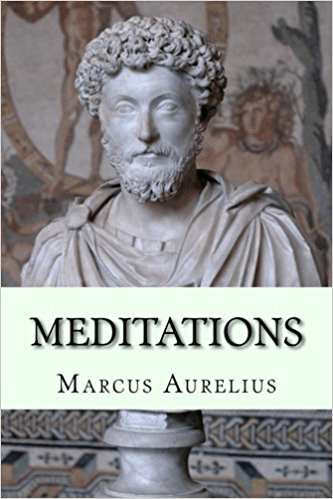 1.1 Marcus Aurelius – Meditations
1.1 Marcus Aurelius – Meditations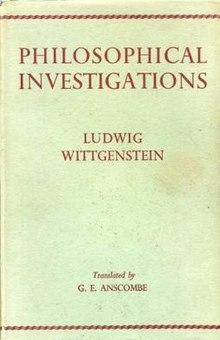 1.2 Ludwig Wittgenstein – Philosophical Investigations
1.2 Ludwig Wittgenstein – Philosophical Investigations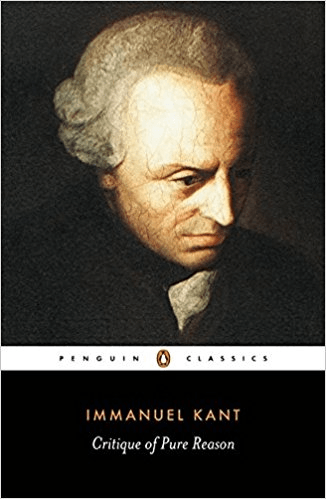 2.1 Immanuel Kant – Critique of Pure Reason
2.1 Immanuel Kant – Critique of Pure Reason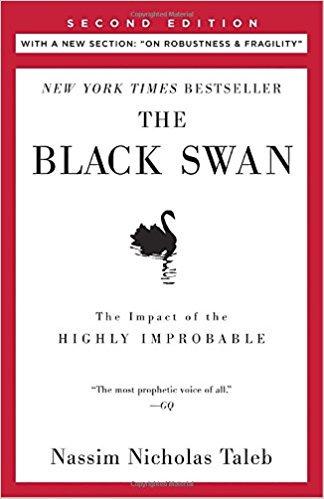 2.2 Nassim Nicholas Taleb – The Black Swan
2.2 Nassim Nicholas Taleb – The Black Swan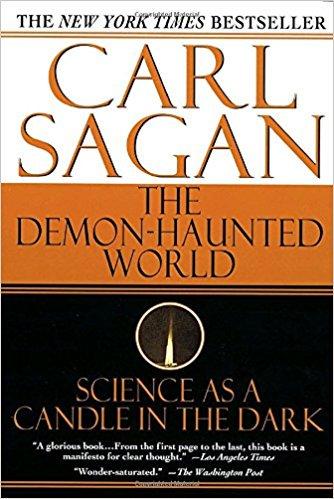 3.1 Carl Sagan – The Demon-Haunted World
3.1 Carl Sagan – The Demon-Haunted World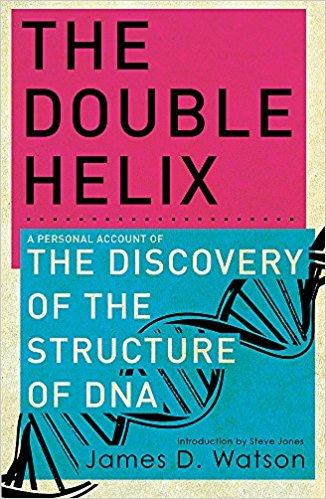 4.1 James D. Watson – The Double Helix
4.1 James D. Watson – The Double Helix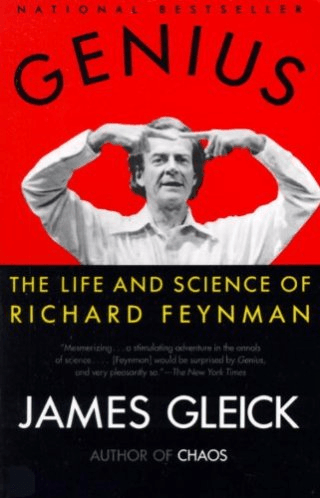 4.2 James Gleick – Genius
4.2 James Gleick – Genius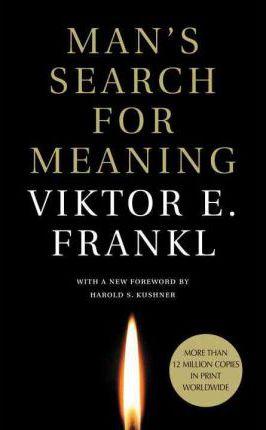 5.1 Viktor Frankl – Man’s Search for Meaning
5.1 Viktor Frankl – Man’s Search for Meaning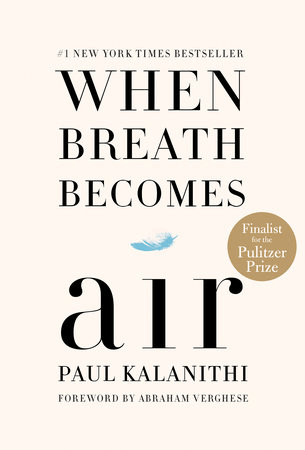 5.2 Paul Kalanithi – When Breath Becomes Air
5.2 Paul Kalanithi – When Breath Becomes Air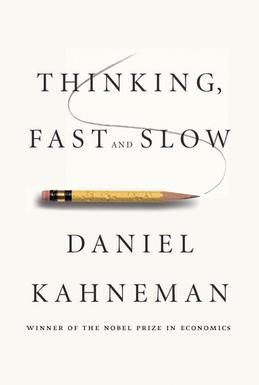 6.1 Daniel Kahneman – Thinking, Fast and Slow
6.1 Daniel Kahneman – Thinking, Fast and Slow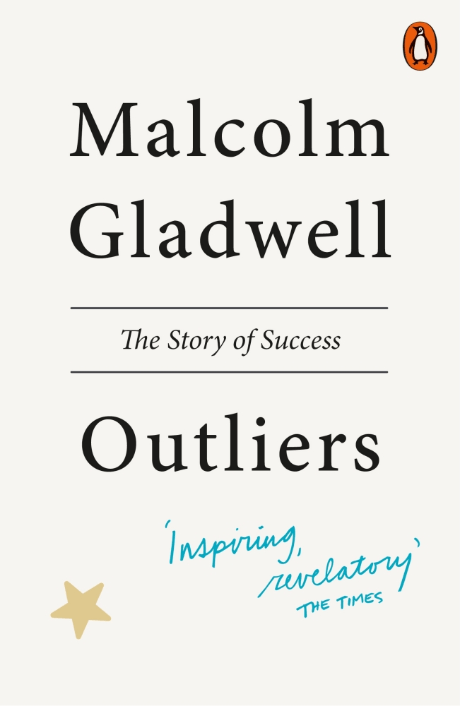 6.2 Malcolm Gladwell – Outliers
6.2 Malcolm Gladwell – Outliers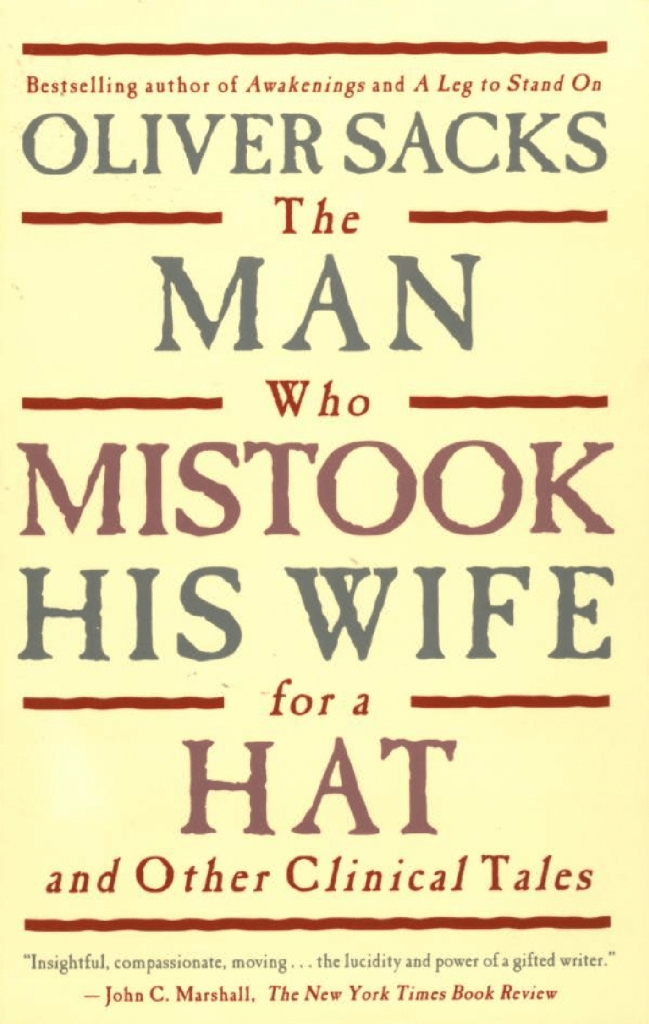 7.1 Oliver Sacks – The Man Who Mistook His Wife for a Hat
7.1 Oliver Sacks – The Man Who Mistook His Wife for a Hat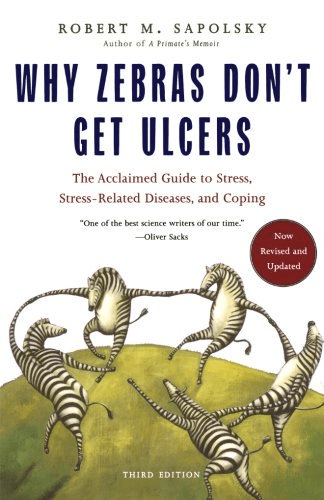 7.2 Robert Sapolsky – Why Zebras Don’t Get Ulcers
7.2 Robert Sapolsky – Why Zebras Don’t Get Ulcers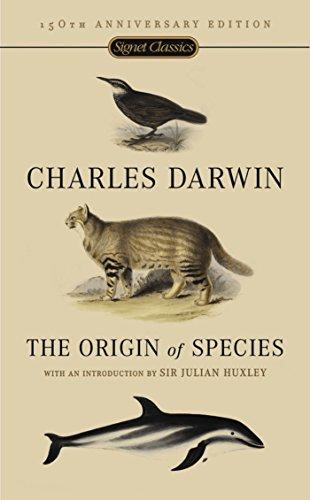 8.1 Charles Darwin – On the Origin of Species
8.1 Charles Darwin – On the Origin of Species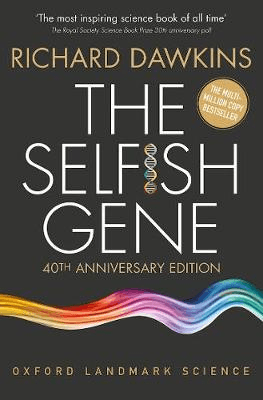 8.2 Richard Dawkins – The Selfish Gene
8.2 Richard Dawkins – The Selfish Gene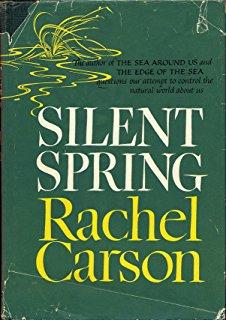 9.1 Rachel Carson – Silent Spring
9.1 Rachel Carson – Silent Spring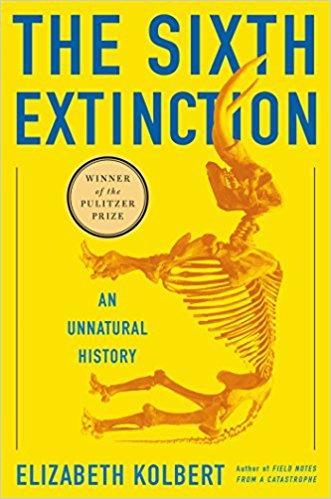 9.2 Elizabeth Kolbert – The Sixth Extinction
9.2 Elizabeth Kolbert – The Sixth Extinction 10.1 Yuval Noah Harari – Sapiens
10.1 Yuval Noah Harari – Sapiens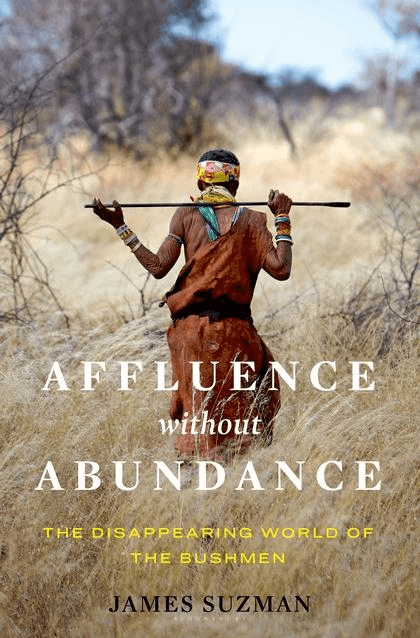 10.2 James Suzman – Affluence Without Abundance
10.2 James Suzman – Affluence Without Abundance
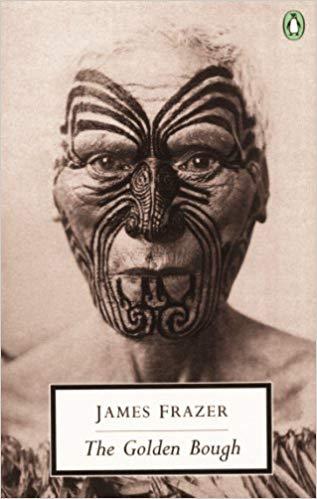 11.1 James Frazer – The Golden Bough
11.1 James Frazer – The Golden Bough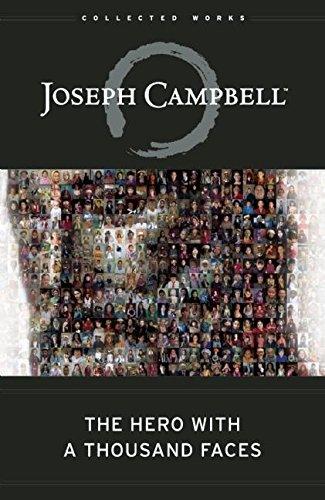 11.2 Joseph Campbell – The Hero with a Thousand Faces
11.2 Joseph Campbell – The Hero with a Thousand Faces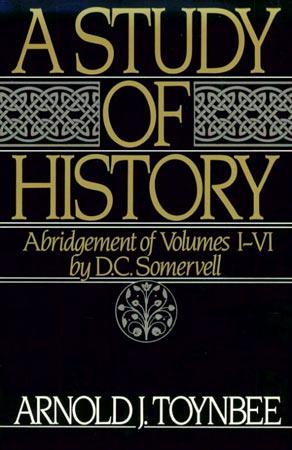 12.1 Arnold J. Toynbee – A Study of History
12.1 Arnold J. Toynbee – A Study of History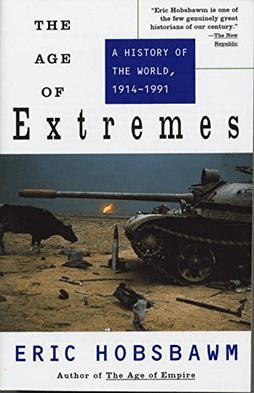 12.2 Eric Hobsbawm – The Age of Extremes
12.2 Eric Hobsbawm – The Age of Extremes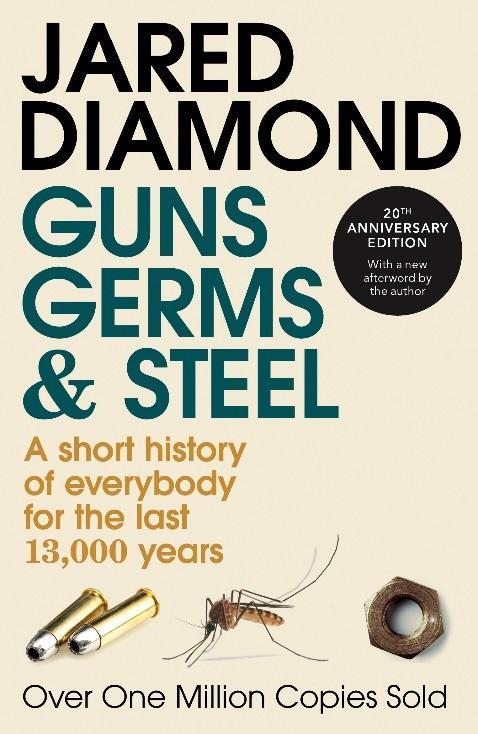 13.1 Jared Diamond – Guns, Germs, and Steel
13.1 Jared Diamond – Guns, Germs, and Steel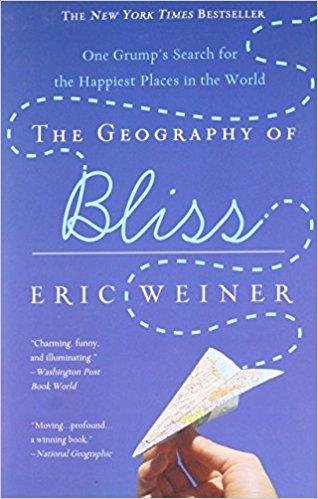 13.2 Eric Weiner – The Geography of Bliss
13.2 Eric Weiner – The Geography of Bliss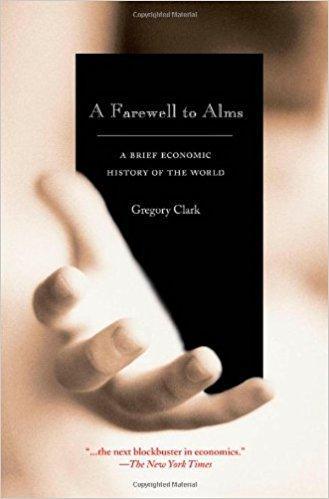 14.1 Gregory Clark – A Farewell to Alms
14.1 Gregory Clark – A Farewell to Alms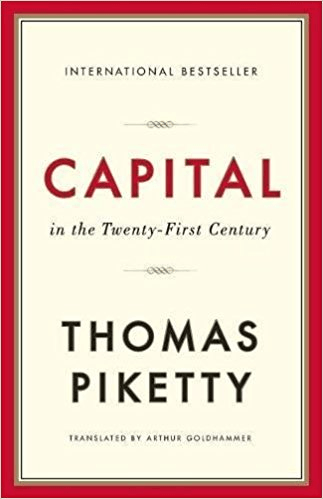 14.2 Thomas Piketty – Capital in the 21st Century
14.2 Thomas Piketty – Capital in the 21st Century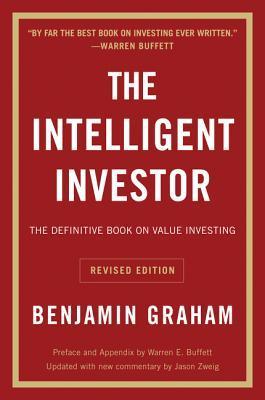 15.1 Benjamin Graham – The Intelligent Investor
15.1 Benjamin Graham – The Intelligent Investor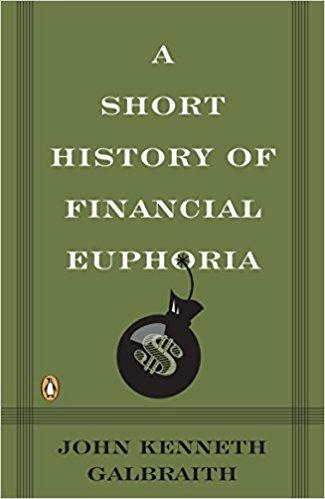 15.2 John Kenneth Galbraith – A Short History of Financial Euphoria
15.2 John Kenneth Galbraith – A Short History of Financial Euphoria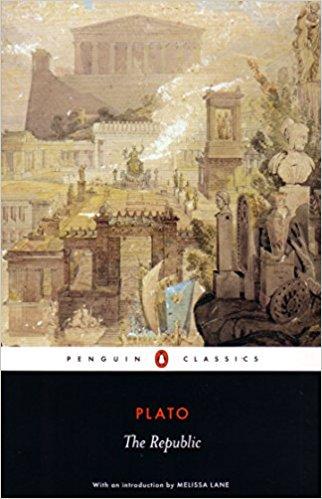 16.1 Plato – The Republic
16.1 Plato – The Republic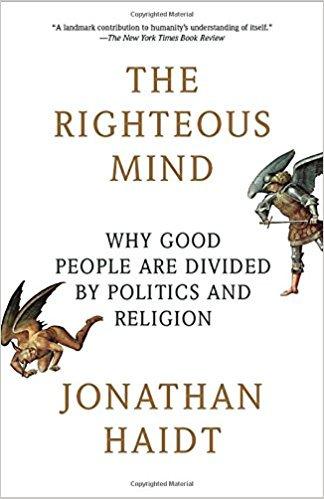 16.2 Jonathan Haidt – The Righteous Mind
16.2 Jonathan Haidt – The Righteous Mind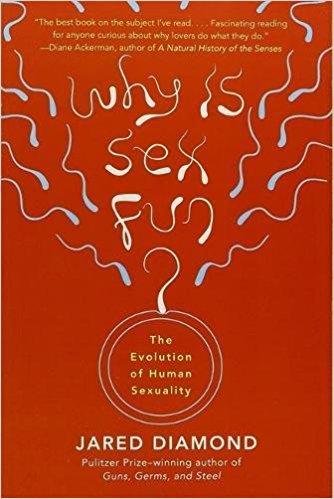 17.1 Jared Diamond – Why Is Sex Fun?
17.1 Jared Diamond – Why Is Sex Fun?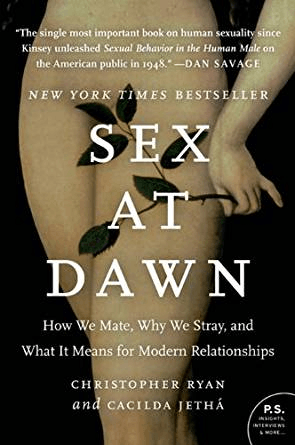 17.2 Christopher Ryan and Cacilda Jethá – Sex at Dawn
17.2 Christopher Ryan and Cacilda Jethá – Sex at Dawn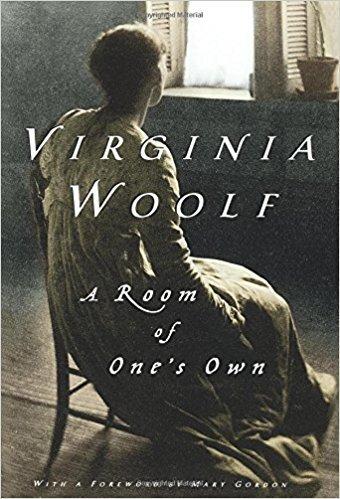 18.1 Virginia Woolf – A Room of One’s Own
18.1 Virginia Woolf – A Room of One’s Own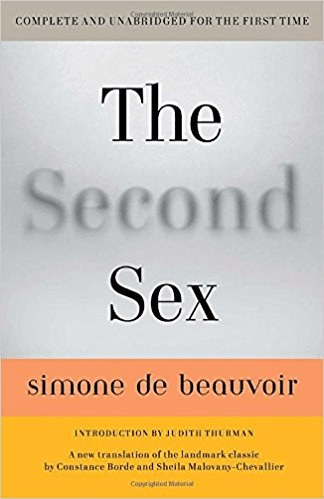 18.2 Simone de Beauvoir – The Second Sex
18.2 Simone de Beauvoir – The Second Sex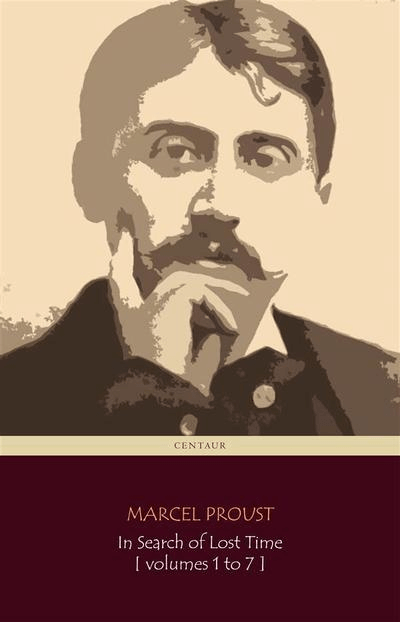 19.1 Marcel Proust – In Search of the Lost Time
19.1 Marcel Proust – In Search of the Lost Time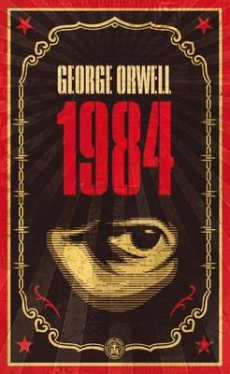 19.2 George Orwell – Nineteen Eighty-Four
19.2 George Orwell – Nineteen Eighty-Four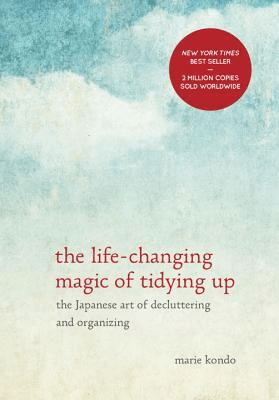 20.1 Marie Kondo – The Life-Changing Magic of Tidying Up
20.1 Marie Kondo – The Life-Changing Magic of Tidying Up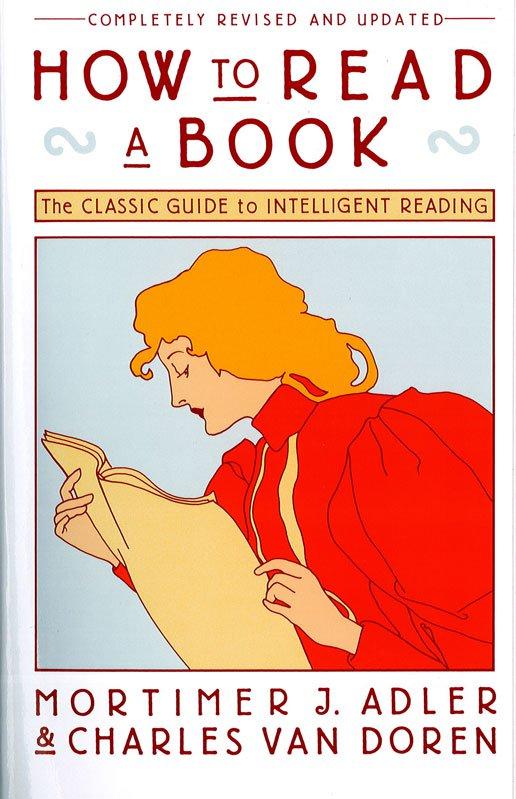 20.2 Mortimer J. Adler and Charles Van Doren – How to Read a Book
20.2 Mortimer J. Adler and Charles Van Doren – How to Read a Book



